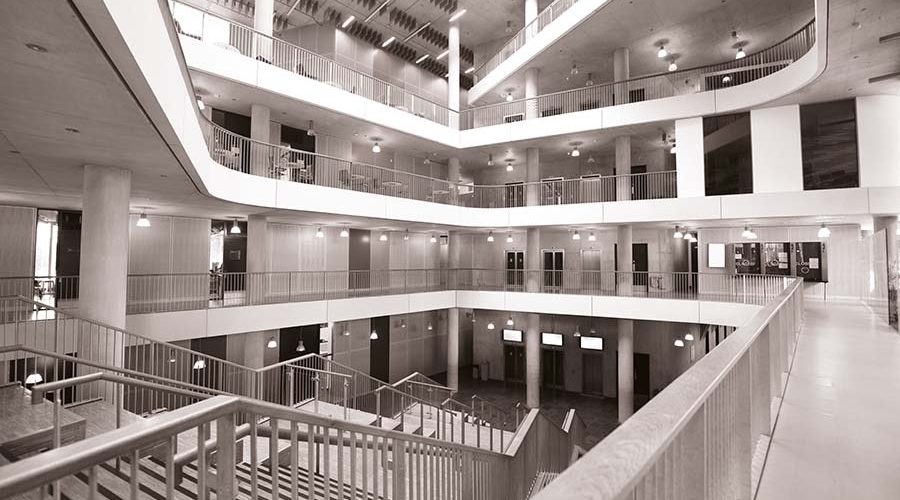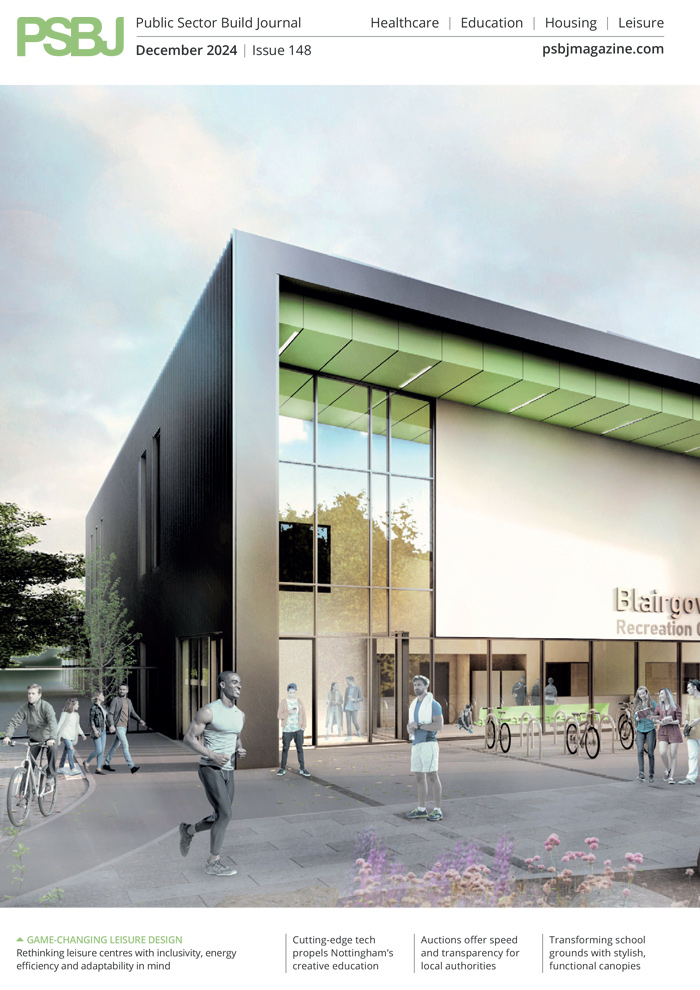Liam Gillard, Programme Manager at Salix Finance, discusses the need to tackle climate change amid the ongoing pandemic, and the importance of making the most of current vacant buildings to invest in energy improvements that will help rebuild the country in a more environmentally-friendly way.
Salix Finance
The pandemic naturally continues to be at the forefront of everyone’s minds, and while responding to the crisis remains imperative, it is also important that public sector organisations do not lose sight of their commitment to tackling the ongoing threat of climate change.
Climate-led investments will play a key role in rebuilding the nation and its economy post-COVID-19. A ‘green economic recovery’ will encourage innovation within green industries, stimulating job creation while helping to shape a more environmentally-friendly future for us all.
Such investments will also be essential if the UK is to meet its climate targets, with the nation having already committed to achieving net-zero emissions by 2050, and having recently announced new targets to reduce emissions by 68%, compared to 1990 levels, by 2030.
The UK is also set to host one of the largest international climate change summits – the UN Climate Change Conference (COP26) – for the first time in November 2021, and with this in mind we, as a country, must lead by example. Successfully achieving a green recovery will require a collaborative effort to be taken across all sectors of society, including the public sector, and every organisation will need to play its part.
One way that organisations can tackle climate change and contribute towards the national green recovery is by investing in energy-efficient technologies that will significantly reduce an organisation’s energy consumption and carbon footprint. Doing so will enable them to support jobs across the green sector, providing a further boost to the economy.
As the UK’s economy continues to recover from the pandemic, achieving cost savings will no doubt be a key focus for many public sector organisations. As well as helping to improve buildings and the environmental landscape, investing in energy-efficiency projects has the added benefit of bringing significant financial savings to organisations that install them.
In addition, financial savings can be made on maintenance costs due to the longer lifespans and improved reliability of new technologies. By reducing costs, organisations can invest money in other key resources as well as improve their overall resilience, something that is particularly important right now in such an uncertain economic climate.
Relatively simple measures, such as LED lighting upgrades and adding insulation or heating controls, can reduce energy usage and bills substantially, saving organisations thousands of pounds.
An example of this is Wrexham County Borough Council, in North Wales, which worked in partnership with Freedom Leisure and Salix Finance to invest over £115,000, upgrading the lighting in its sports areas to more energy-efficient LEDs. The project enabled the council to save an estimated £17,662 a year as well as deliver on decarbonisation, reducing its annual carbon emissions by approximately 36 tonnes.
Upgrading to more modern, LED lighting can be one of the most effective ways to reduce consumption and is a good start for many organisations looking to implement energy-saving measures. Looking at renewables, such as solar panels and heat pumps, can also be viable options to help businesses future-proof their buildings.
Taking a holistic approach to energy efficiency by looking to install multiple improvements at the same time (rather than focusing on one technology type) can substantially increase financial and carbon savings as well as improve the building environment for its users.
With millions of employees currently working from home and many offices and buildings remaining empty, there has never been a better time to invest in energy upgrades, avoiding staff disruption while helping to make cost savings that will cushion organisations against future spending cuts.
While there is an obvious case for investing in energy efficiency upgrades, the reality is that making such investments may not seem like a viable option to many organisations right now given the current financial climate. However, despite the pandemic, funding options are still available to help invest in such technologies. These include interest-free loans from Salix, which are paid back over several years from the savings made on energy bills.
Since 2004, Salix has invested £971m in energy-efficiency projects across public sector organisations in the UK, resulting in estimated savings of over £203m and 867,000 tonnes of carbon a year. The organisation offers funding for both large-scale and small-scale projects and covers over 100 technologies, including LED lighting, building energy management systems and renewables.
As the world works hard to recover from the pandemic, and with the ongoing drive of the climate change agenda, supporting green industries has never been more important. On an individual level, investing in energy-efficiency projects can help organisations to become more resilient, while also contributing to a greener future for us all.

Liam Gillard is Programme Manager at Salix Finance – a Government-funded organisation which works to improve energy efficiency and reduce carbon emissions across the public sector.






